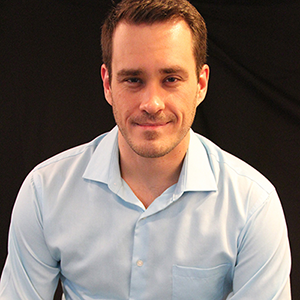The very existence of God brings about a certain polarity of opposites, namely good and evil.
If there is goodness, there must also be evil. If not, then how can there be goodness?
These two things are a continuum. They must either come into existence simultaneously or have always been in existence. They cannot exist independently of each other.
People blame God for evil, but His very existence as a good God necessitates that evil exists, because it is the opposite of who He is (Exodus 34:6, James 1:17).
Without God, maybe there wouldn’t be any evil, but then there wouldn’t be any goodness either. There would only be utter nothingness (Genesis 1:2, John 1:3)
However, it isn’t God who is to blame, because it’s only as people move away from Him, the light, that they encounter the darkness. A choice God has given mankind.
Good and evil are foundational laws of the cosmos. Even those who choose to ignore God’s existence cannot escape the realities of good and evil.
Almost invariably, society chooses the darkness…greed, injustice, malice, selfishness, etc.
These things are contrary to the way of love (1 Cor. 13:4-7) and they also bring disorder and imbalance to society (James 3:16, Proverbs 14:34, Proverbs 15:27). Chaos and darkness go together.
It’s only by choosing evil over good that people go away from the light. Not only that, but they become a part of the darkness (Ephesians 6:12).
Now in the case of creation, God did not make a corrupted mankind (Genesis 1:31). He made us good and we did not know evil whatsoever (Genesis 2:16-17 & Genesis 3:22).
However, God would not be a loving God without allowing us the free will to choose to disobey, and to choose whether we pursued light or darkness.
We had to have the option, or He could not say that He loved us. Plus, He cannot act in a way that is inconsistent with His character (Malachi 3:6), which is love (1 John 4:8).
Now you might make the case of whether someone leaving a child near a hot stove would be a loving thing to do. However, Adam was not a child. To some degree he had adequate understanding and knew he was doing the opposite of what God had said.
Now, he didn’t understand good and evil, but that’s the point. God put them in the garden in the BEST STATE POSSIBLE.
Here’s why: If they understood good and evil, they would be accountable to it. They would not be as carefree as they were.
But alas, Adam chose to ruin that (Adam was accountable, because He is the one that God instructed to not eat of the tree).
Now, with that foundation, let’s look at the flood…
By the time the flood came upon the earth, mankind had very much chosen the evil on a mass scale and had rejected goodness entirely (Genesis 6:5).
God, being omniscient, looked out into the future and saw the unborn generations. He also saw the current and past generations (1 Peter 3:18-20), who had not yet received atonement. Christ’s work covered past generations also, temple sacrifices only covered sin, it didn’t remove it (Hebrews 10:4-11).
At this point, God had a choice to make. He could let all of mankind be utterly destroyed, for they were so enveloped in darkness that they would have likely destroyed themselves anyways. Or, he could cut off the evil and start over (Genesis 6:17-18), with the plan of giving a lifeboat (Jesus, John 1:1-2 & Luke 19:10) to those who did not reject the way of the light.
Now I ask you: What kind of person, having a conscience, lets everyone die, rather than letting a lesser number die and saving many?
In war, men are given medals for saving many, even if their brothers don’t make it out. How much more honorable to save billions of lives throughout the eons?
Yes, He created us, even though we would disobey. But had He not, many would not have the opportunity to choose Him, to choose life, and to choose it eternally (Colossians 1:13).
After Job lost everything, toward the end of the book, God spoke to Job, and at that point Job saw how infinitely complex the universe is (Job ch. 38-42). God basically asks him if he has enough understanding to even be aware of everything that happens in the universe, then basically asks him if he himself is capable of managing such complexity.
-JCF
